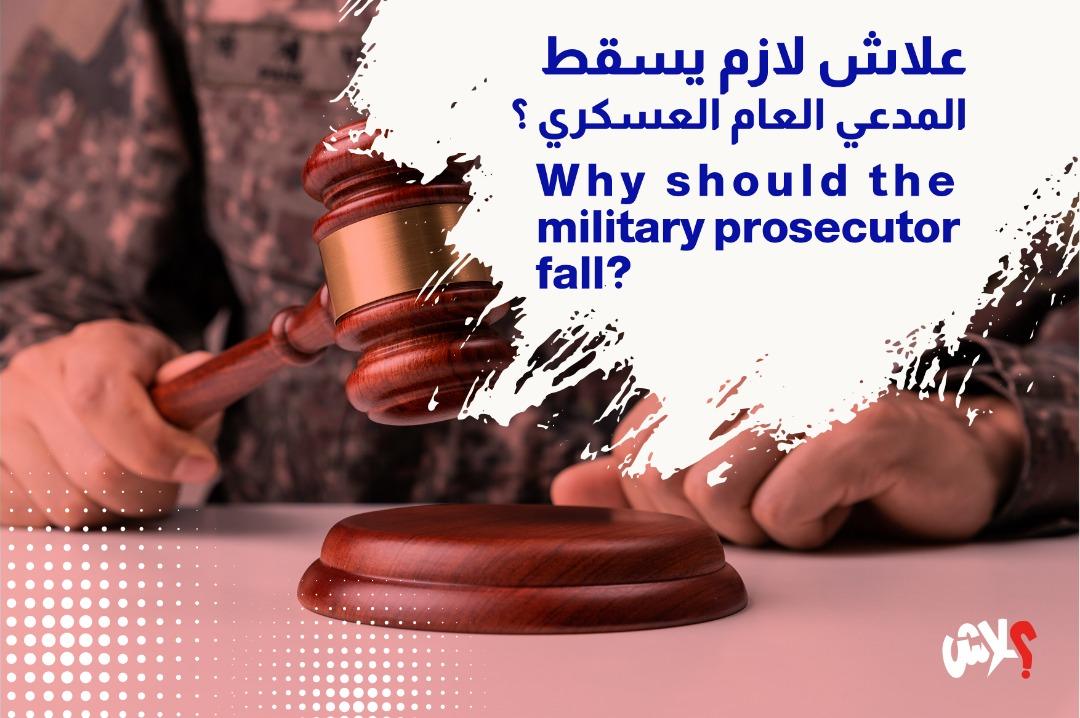Why should the military prosecutor fall?
Is justice what the government sees? Or is it what the judges, whose conscience is safeguarded from every influence other than the Sharia and the truth, see it, from every pressure, even the pressure of public opinion?
This is part of the questions raised by the great thinker Abd al-Rahman al-Kawakibi when he asked about the relationship of the executive authority with the judicial authorities, both ordinary and military.
The recent events in Tripoli resulted in a military clash between armed formations loyal to Abdel Hamid al-Dabaiba or Fathi Bashagha. They are battling for the position of prime minister in a country where the state was not even born.
Immediately after his armed formations managed to exclude his opponents, Abdul Hamid al-Dabaiba proceeded to issue a letter to the Military Prosecutor, which stipulates that legal measures be taken against anyone who contributed militarily or based on incitement against the government, according to what was stated in the text of his letter in his capacity as Minister of Defense.
Here, I think that there is a logical question that imposed itself as a result of these events, which is whether the character of the Military Prosecutor and his subordination to the executive authority has become a weapon in the hands of governments that they use against their opponents. Is merely criticizing or opposing the government and exercising the constitutional right to demand its departure sufficient to be the reason for presenting those who authorize this before the military judiciary, which is based in its nature on the application of a law containing severe penalties, in addition to the availability or non-availability of the necessary conditions for bringing civilians before the military judiciary in the first place...
It was stated in the text of Article No. (1) of Law No. 4 of 2017 regarding the amendment of some provisions of the Military Penalties and Military Procedures Laws (…the provisions of this law shall apply… 3 Civilians working in the Libyan army in the event of mobilization…)
From here, we note that the law has restricted the possibility of bringing civilians before the military judiciary with two conditions, the first being that they are workers in the Libyan army and the second that there is a state of mobilization or that this civilian commits a terrorist crime under the text of the sixth paragraph of Article One
Here, it becomes clear to us many problems concerning bringing down the correct law according to what was stated in the decision of the Military Prosecutor dated 08/28/2022.
The accused civilians are not workers in the Libyan army, and their actions and behaviors that fall under the criminal model of terrorist crimes cannot be described. The term terrorist crimes are one of the broad terms that need a definition that defines what is terrorist and what is not terrorist behavior.
This scene was repeated in a way that may be close to the case we discussed earlier, when the military court issued a 15-year prison sentence against the journalist (Ismail Bzariba Al-Zawi), when he was accused based on his criticism of the military authority in the east of the country and that he communicated with channels considered supportive of terrorist formations ( as described) Which led to depriving him of a fair trial or enabling him to defend himself by the fair trial standards stipulated in Libyan law, in addition to the fact that this procedure initially contradicted the provisions of the military law that we mentioned earlier, which stipulate the availability of specific conditions for bringing civilians to military justice,
In addition to everything mentioned, all international covenants attend the presentation of civilians on issues related to freedom of expression and the right of people to express their opinions before the military judiciary, which specifically shows the extent of violations committed by the executive authorities in Libya against anyone who tries to initiate an opinion that does not agree with the whims of the owners of the country.
The continuation of the subordination of the military judiciary and in front of it, the military prosecutor of the executive authorities in Libya is nothing but a sword hanging over the necks of everyone who tries to oppose a position or course that the executive authorities saw as right. It is nothing but a paper smeared with black ink and signed by trembling hands, capable of ending the future of a person who thought To have an independent opinion...

